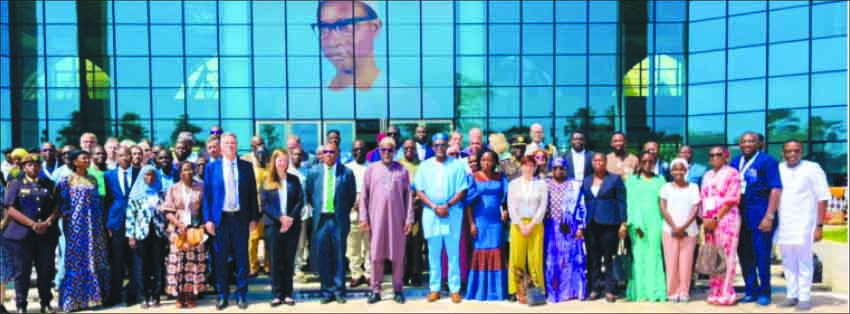By Mahzouba Maya Faal
The Gambia has taken center stage in Africa’s fight against climate change as the Vice President of The Gambia, His Excellency Mohammed B.S Jallow, recently officially opened the International Stocktaking Conference on Climate Ser-vices for Risk Reduction in Africa (CS4RRA) held at the Sir Dawda Kairaba Jawara International Conference Centre. The high-profile gathering aimed to strengthen climate resilience across West Africa by enhancing climate knowledge, research, and early warning systems for communities facing environmental threats.
In his opening speech, Vice President Jallow highlighted the conference’s importance, noting its historic alignment with the centenary of Sir Dawda Kairaba Jawara, The Gambia’s first President, an environmental advocate. “We are delighted as this event coincided with the centenary year of the birth of the first President of the Republic of The Gambia, His Excellency, Sir Dawda Kairaba Jawara, the Father of our nation and the champion of the Banjul Decla-ration of 1977, which continues to guide our efforts in environmental stewardship,” said VP Jallow. The Vice President emphasized The Gambia’s commitment to climate resilience through its National Development Plan (2023-2027), which prioritizes building communities’ resilience to climate shocks that affect food security, livelihoods, and health while calling for bold action to protect vulnerable communities from the effects of climate change.
“I, being in charge of the ministerial portfolio of disaster, the National Disaster Risk Reduction Policy 2024-2033 has been developed with an accompanying implementation plan. Equally, the regulations for Disaster Risk financing have been developed and signed. This elaborates government’s commitment towards disaster risk reduction,” he said. Furthermore, VP Jallow called upon conference participants to collaborate on research, innovation, and capacity-building efforts aligned with both the African Union and European Union’s climate objectives. He urged for tangible outcomes from the conference, including mobilizing funding for climate research and support for West Africa’s most affected populations. “We encouraged you to use this conference as a platform to leverage on the available support for our vulnerable communities who bear the most brunt of climate risks, the causes of which they are not responsible for,” VP Jallow concluded.







